Investigative Stories
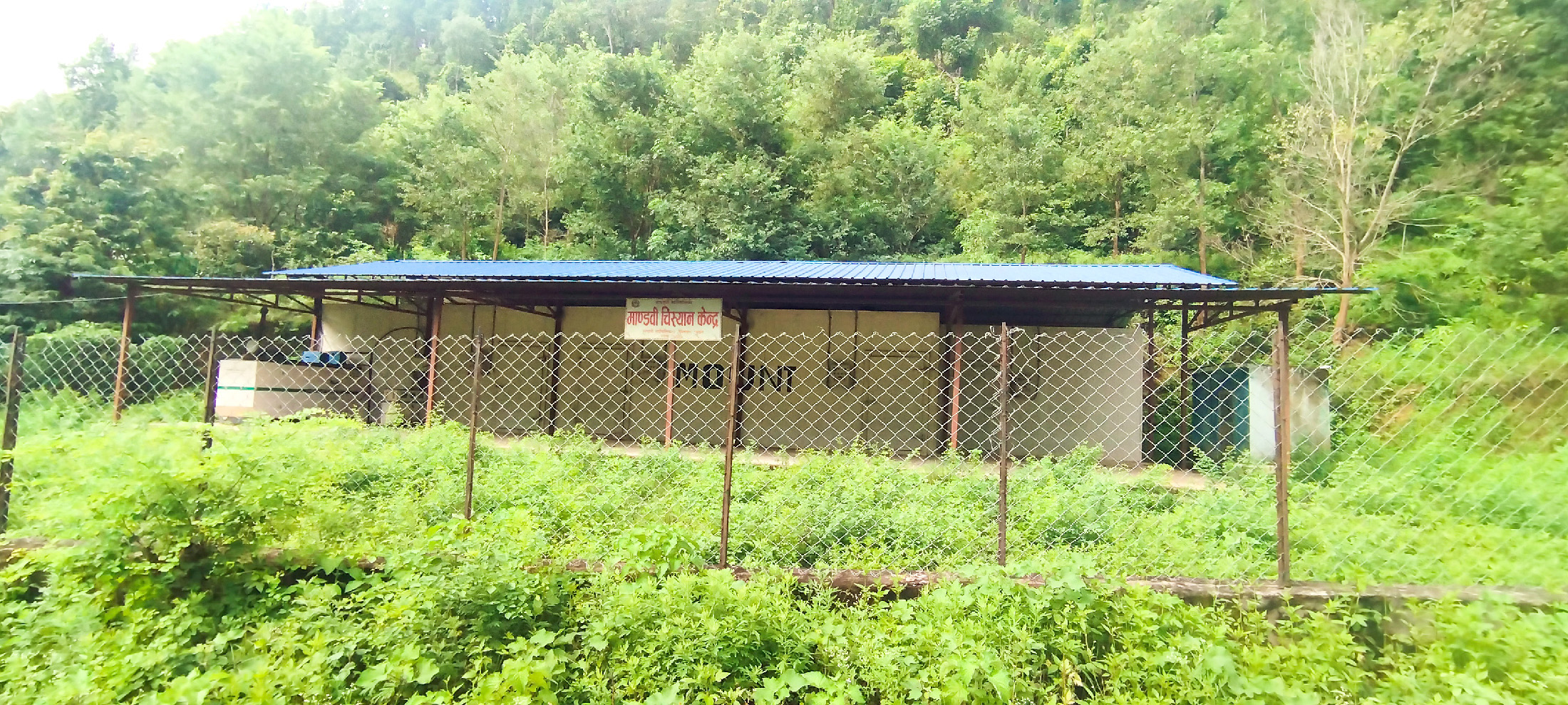
On June 15, 2018, the then chief minister of Lumbini Province Shankar Pokharel announced that the government would ensure the safe storage of agricultural produce. “For this, one cold storage facility will be set up in each local unit,” he said.
According to the provincial ministry of agriculture, land management and cooperatives, that same year, as much as Rs330 million was disbursed to set up cold storage facilities in 19 places. The provincial government had dubbed it as ‘youth-targeted agricultural program’.
When the budget was announced the next year, Pokharel was still the chief minister. The budget disbursed Rs350 million to set up new cold storage facilities. But many of them have yet to come into operation.
The blame game
Vegetables produced in Rolpa’s Tribeni and Runtigadhi rural municipalities are transported to Dang, Butwal, Nepalgunj and as far as Bahraich in India. A cold storage facility was set to be established in these two rural municipalities that border Dang. The Dahaban area in Tribeni’s ward 2 was selected as the construction site. According to the agreement, the two rural municipalities would invest 25 percent of the total construction cost. While the storage facility would be established with financial assistance from the provincial ministry of agriculture, the Nuwagaun Small-scale Farmers’ Agriculture Cooperative in Tribeni-2 would build and operate it.
The then district secretary of CPN-UML Nim Prasad Roka, who has since deceased, was the chair of the cooperative. UML leaders such as Kumar Dasaudi, a former member of National Assembly, were behind granting the responsibility to operate the cold storage to the cooperative, says local farmer Tek Bahadur Gharti Magar.
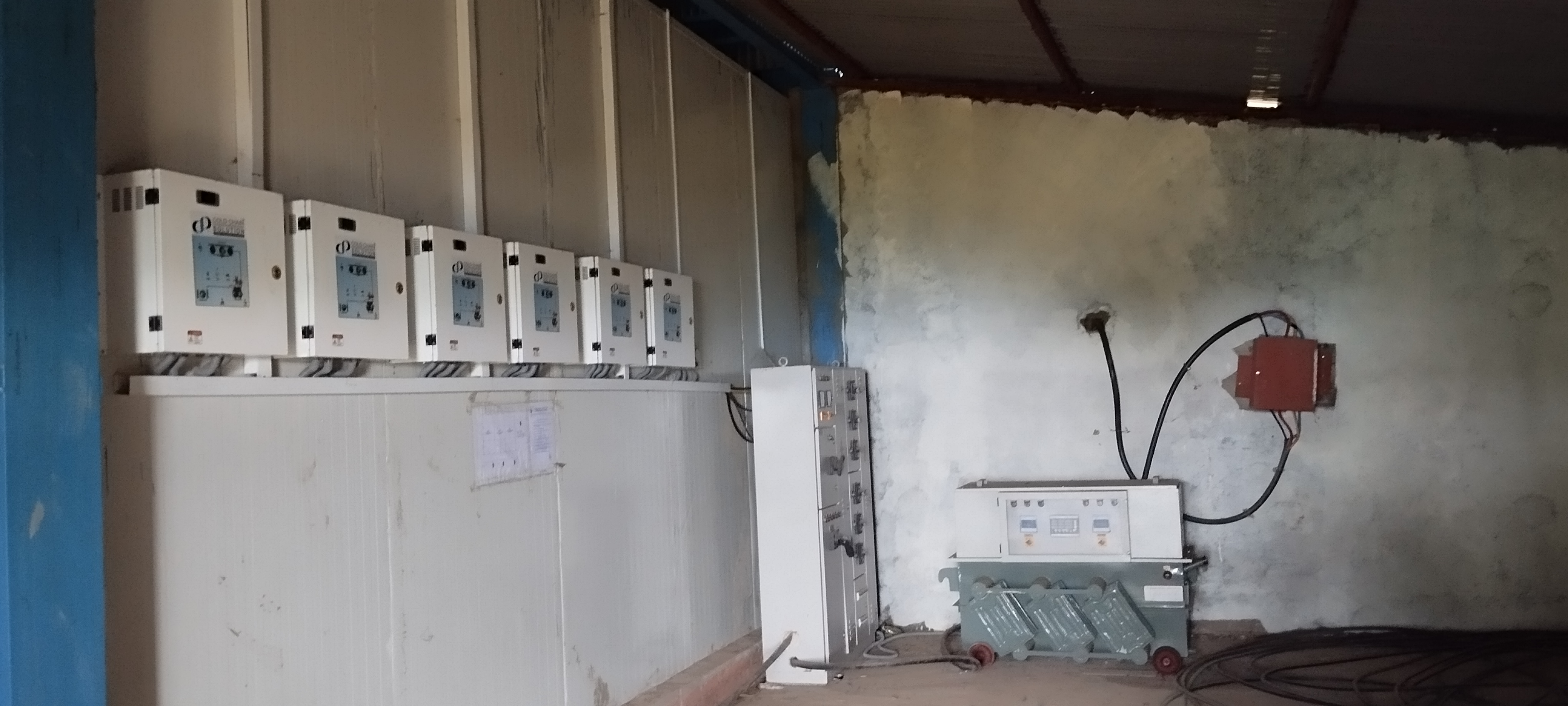
The cooperative had claimed that the cold storage had conducted a successful test in 2078-79 BS after adding essential equipment. But the storage is yet to come into operation. After it didn’t pay electricity dues worth Rs663,000, the Nepal Electricity Authority cut off power, according to Dor Bahadur Bohora, a member of the cooperative.
Now the storage’s roof leaks at places. Wooden racks built to store agricultural produce have started to decay. The wiring on the walls is in disarray. Meanwhile, expensive equipment imported from India remain unused.
Local farmer Tek Bahadur Gharti Magar says that the cooperative should have assigned the responsibility to a group that had the knowledge and skill to construct the storage rather than take it in its own hands. “They installed marbles where there should have been stones,” he said. “There were questions on other fronts as well. There were graft charges. This storage is not technically sound, that’s why it’s not functioning.”
Another local farmer Shanta Raj Bohara says a vehicle worth about Rs2.9 million was purchased in the name of the cooperative out of the Rs2 million provided by the provincial government and Rs1.1 million provided by the Tribeni Rural Municipality. “When the amount received for one purpose is used for quite another, how would the cold storage function?” Bohara said.
Meanwhile, the cooperative’s chief Lok Bahadur Dangi claims that the problems in the storage’s functioning stem from the fact that they had to prepare detailed project report (DPR) twice and while they had to take help of HVAC engineer, agriculture expert and financial consultant for the DPR, they depended only on a civil engineer. This, according to Dangi, resulted in a suboptimal construction, compounded by the fact that the provincial government provided only half of the amount it promised.
“There was an agreement the provincial government would provide Rs41 million 691 thousand but after the government changed, it provided only Rs27.6 million. This caused problems for the cooperative itself,” Dangi said. “Local governments didn’t help either, and we had to sell lands to pay back the loan taken to construct the storage.” Dangi further says that they could make the storage operational if they have Rs10 million in hand now.
According to Nima Giri, a Lumbini provincial assembly member, the provincial agricultural ministry had declined to provide the amount citing there was a case lodged at Commission for Investigation of Abuse of Authority about the substandard work during construction.
“Another thing is since all cold storages constructed would be credited to then chief minister Pokharel, none of the successive chief ministers was interested in forwarding the project,” Giri said. “I have been raising this issue in the assembly saying it risks wasting the amount from state coffers, but nobody has paid heed to it.”
Budget freeze citing unsettled accounts
Rolpa’s Gangadev Rural Municipality is known for producing a large number of potatoes and fruits. Last year alone, the rural municipality exported potatoes worth Rs450 million. Even star hotels in urban centers use potatoes produced at the rural municipality.
But a lack of cold storage facilities has compelled the farmers to sell the produce immediately after they harvest it. It is for this reason that the province government planned to build a cold storage facility. The responsibility for construction and operation of the facility, which would have a capacity of 200 metric tons, was given to ‘Farmers for Farmers’ group, based in Jinabang of the Gangadev rural municipality’s ward 3.
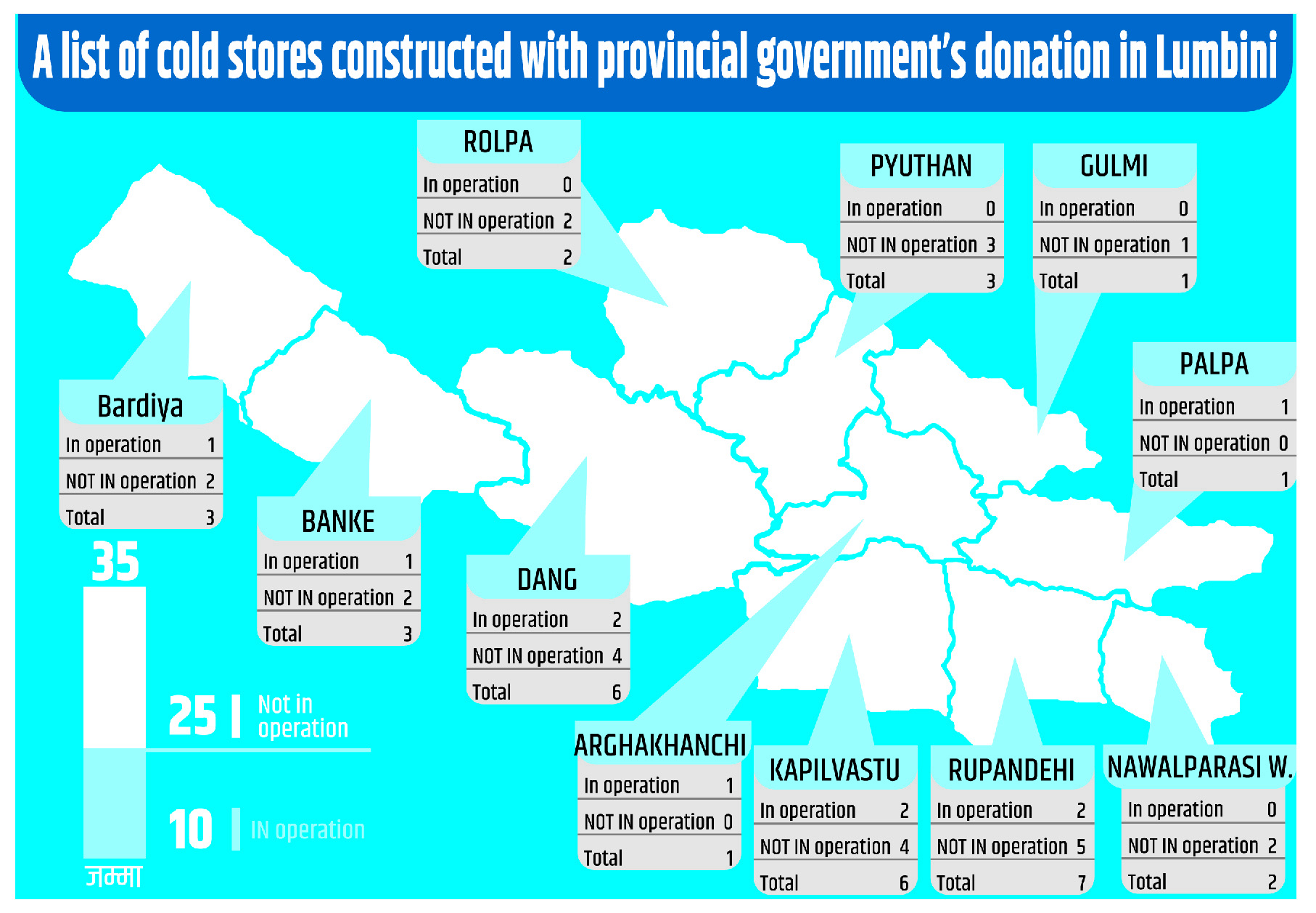
The rural municipality invested Rs1.2 million for the construction of the facility, expected to be built at the total cost of Rs39.9 million. But the Auditors General report has categorized the municipality investment as audit irregularities.
The spending, made during the tenure of then chair of the rural municipality Bir Bahadur Khatri, has yet to be settled. After the incumbent chair said the construction would move forward only after those accounts were settled, the amount provided by the provincial government through the local unit has also been “freezed”.
“The Auditor General office flagged it as an audit irregularity citing duplication of budget, from the provincial and local governments,” incumbent chair of the Gangadev rural municipality, Hari Bahadur Pun Magar, says. “Only after the former chair settles it , the work will move forward.”
Khatri, however, accuses Magar of throwing whatever he started in his tenure into disarray. “Settlement of arrears is just a façade, Magar is not interested in carrying forward the work we started,” Khatri said.
Meanwhile, a complaint has been filed at the CIAA, citing there was quality compromise during the construction. “The cold storage is currently in disarray,” Lokman Oli, ward chair of Gangadev-3, said. “After they were not paid, the sellers took away even the installed transformer.”
Oli informed that while the work of physical construction is over, only the work involving machine installation remains. “Farmers were excited upon the news of the cold storage’s construction, but now they are frustrated,” he said. “Lack of a cold storage facility has hampered our sales, forcing us to sell the produce cheaply.”
Cold stores that have remained unused due to technical faults
The cold storage built at Devisthan in Pyuthan’s Mandavi Rural Municipality-3 at the cost of Rs11.2 million received in grant from the province government also remains unused. This facility was built by Kakshapati Construction Service in 2077BS.
Potatoes stored by farmers at the facility, which has a capacity of 100 metric tons, began to decay at the beginning. And since then, farmers have stopped storing their produce there. “We are now compelled to sell the produce right after we harvest them,” says local farmer Narayan Adhikari. “Transporting and storing them outside of the district is costly.”
Dhanendra Karki, chair of the Mandavi rural municipality’s ward 3, says that the cold store’s machine has stopped functioning, and the rural municipality has paid no attention to repairing it.
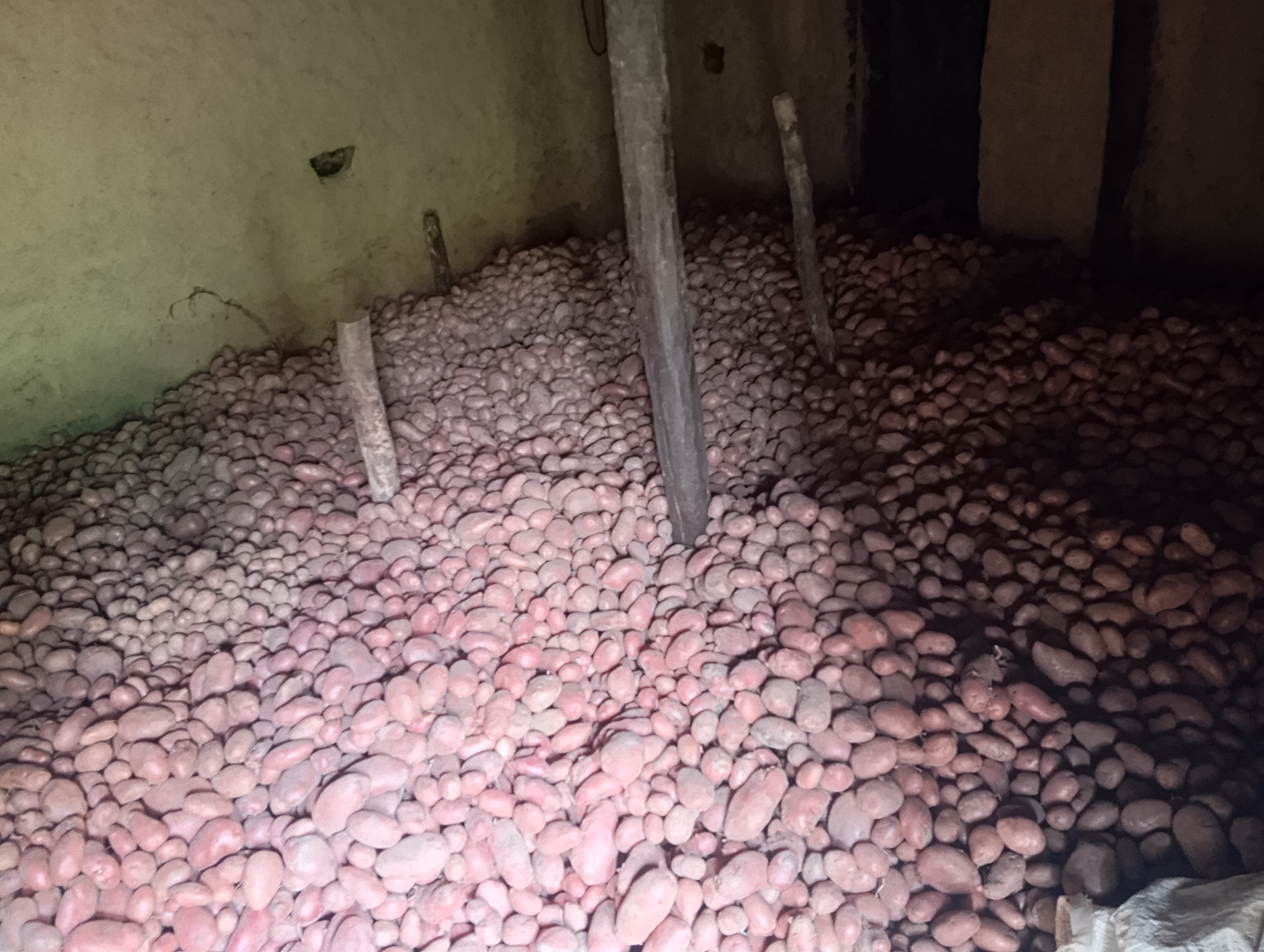
“It pains to see a cold store built with so much investment lying unused,” Yagya Bahadur Thapa, a local resident, says.
Meanwhile, another cold store in Pyuthan built at the investment of Rs9 million from Lumbini Provincial Government and Rs5.9 from Pyuthan Municipality has also remained unused.
Like at Mandavi, produce stored by farmers decayed at this cold store. The facility has since closed.
“We have been unable to operate the cold store following technical problems,” Resham Bahadur Karki, ward chair of Pyuthan-4, says. “This time, on my own initiation, the municipality has disbursed Rs1 million for its repair.”
Irregularities in DPRs
Another local government in Pyuthan, Jhimruk Rural Municipality, likewise constructed a cold store at the cost of Rs21.4 million but it has yet to come into operation. While building construction is complete, the DPR didn’t include purchase of electronic equipment, and that the rural municipality hasn’t been able to buy them by itself, said Pramod Pokharel, vice-chair of the rural municipality.
“A generator and a temperature regulating machine are yet to be installed,” he said. “If the construction company hands it over to the rural municipality by completing pending work, it will come into operation.”
He added that an HVAC (Heating, Ventilation and Air Conditioning) system engineer would be needed to prepare DPR for a cold store but in this case, a civil engineer was deployed, and that explains the omission of electronic equipment.
Currently, farmers from Pyuthan store their produce at Rapti Cold Store at Tikuligadhi in Lamahi-3, Dang. As many as 50 metric ton potato seeds from Pyuthan’s Swargadwari, Pyuthan, and Jhimruk municipalities are sent to the cold store for storage. And for farmers, this costs extra time and money. The farmers have to pay Re1 per kg of their produce housed at the cold store. Transportation and loading-unloading process incurs additional cost.
Pervasive phenomenon across Lumbini
Not just in Rolpa and Pyuthan, the phenomenon of cold stores lying in disrepair is pervasive across Lumbini. In Dang’s Dangisharan Rural Municipality-3, for instance, a cold store built at the cost of Rs11 million is in disarray due to an ‘engineering fault’.
Similar is the fate of a cold store built at Susta-4 in Nawalparasi West. The facility, with a capacity of 500 metric tons, was built at the cost of Rs50 million funded by the provincial government and the rural municipality. It is not in operation due to the shortage of produce to be stored.
Likewise, a cold store of 100 metric ton capacity in Gulmi’s Dhurkot Rural Municipality built at the cost of Rs14.5 million is also not in operation, reportedly due to lack of technician skilled at regulating temperature.
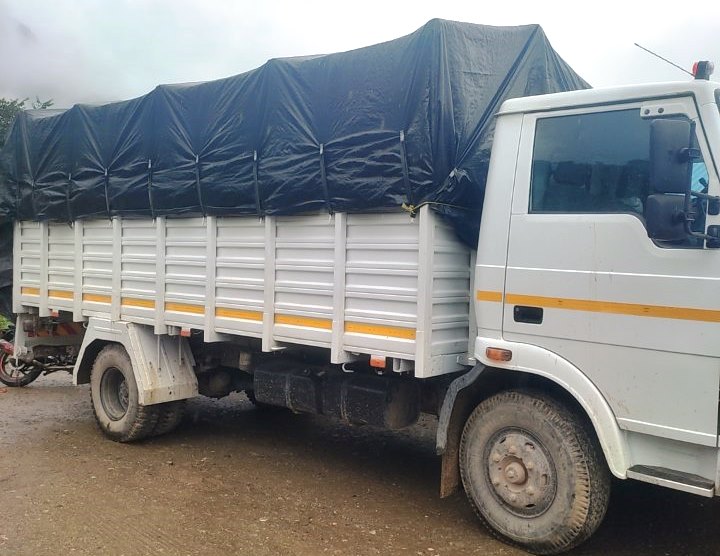
Neither are the cold stores built at Rupandehi’s Sammarimai-5, Arghakhanchi’s Sandhikharka-Hataari, Bardiya’s Bansgadhi-7, and Kapilvastu’s Chandrauta and Jeetpur in operation.
Lab Kumar Adhikari, an expert in ventilation technology, says many of the cold stores in Lumbini built through province government’s grant are not in operation because they have outdated systems.
“These cold stores used the R20 gas for freezing. This gas is considered harmful for human health and is banned in countries including Nepal. Some other cold stores also suffer leakage problems,” Adhikari, a technician who was involved in construction and repair of the cold stores, says. “Generators worth Rs3 million brought for cold stores’ operations are also dysfunctional.”
‘We will bring them into operation following the report’s recommendation’
After the cold stores stopped operating, a committee was formed with the coordination of provincial planning commission’s vice-chair. Provincial minister of agriculture Dinesh Panthi says the ministry would move forward incorporating the committee’s suggestions. “The report will include the reasons for the discontinued operation of cold stores and measures to be followed for constructing cold stores in future” Panthi added.
Dr Dilliraj Aryal, vice-chair of the provincial planning commission, says the committee has already submitted its report. He said the report points out reasons behind why the cold stores are not in operation and the way forward. Aryal didn’t clarify more about this report.
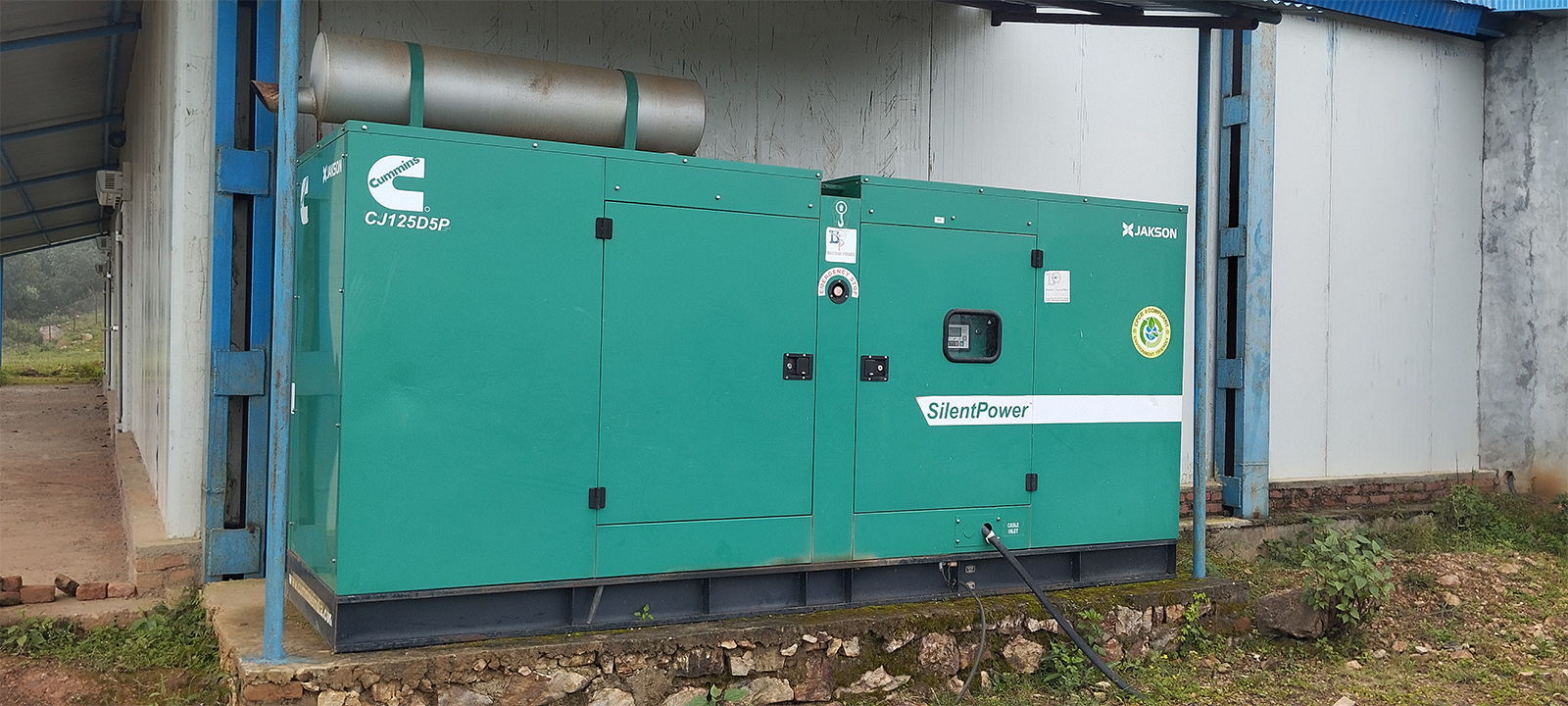
Meanwhile, Hari Prasad Pandit, spokesperson of the provincial agriculture ministry, insisted that it was not accurate that the cold stores are not functional. “Cold stores with huge capacity do not have sufficient produce to house them,” he said. “The local governments should take the responsibility for those cold stores built under the conditional grant from the province government and are no longer in use. The provincial government has come to the conclusion that the cold stores should be operated even by handing them over to private investors.”
On the other hand, Karna Bantha Magar, chair of Triveni Rural Municipality, says the provincial government should take the responsibility of the ambitious projects. “The provincial government should not engage in blame games and shift all blames to local government,” he said. “As we have already spent so much money, we should all coordinate to make them operational.”
Process goes against standards: Auditor General’s office
The yearly report of the Auditor General’s office says the provincial government’s grant mechanisms go against standards. Its 59th yearly report says that the provincial government hasn’t followed the provision of the Cold Storage Construction Grant Procedure, 2075’s clause 11 (c). The provision states that the subsidy would be granted only if the recipient had land on its own name or if it had leased it for at least 20 years.
“The situation is such that investment was made on a construction on private land and the return to that is not certain,” the report states, adding that the farmers were unable to get the subsidy as it was granted without sufficient study.
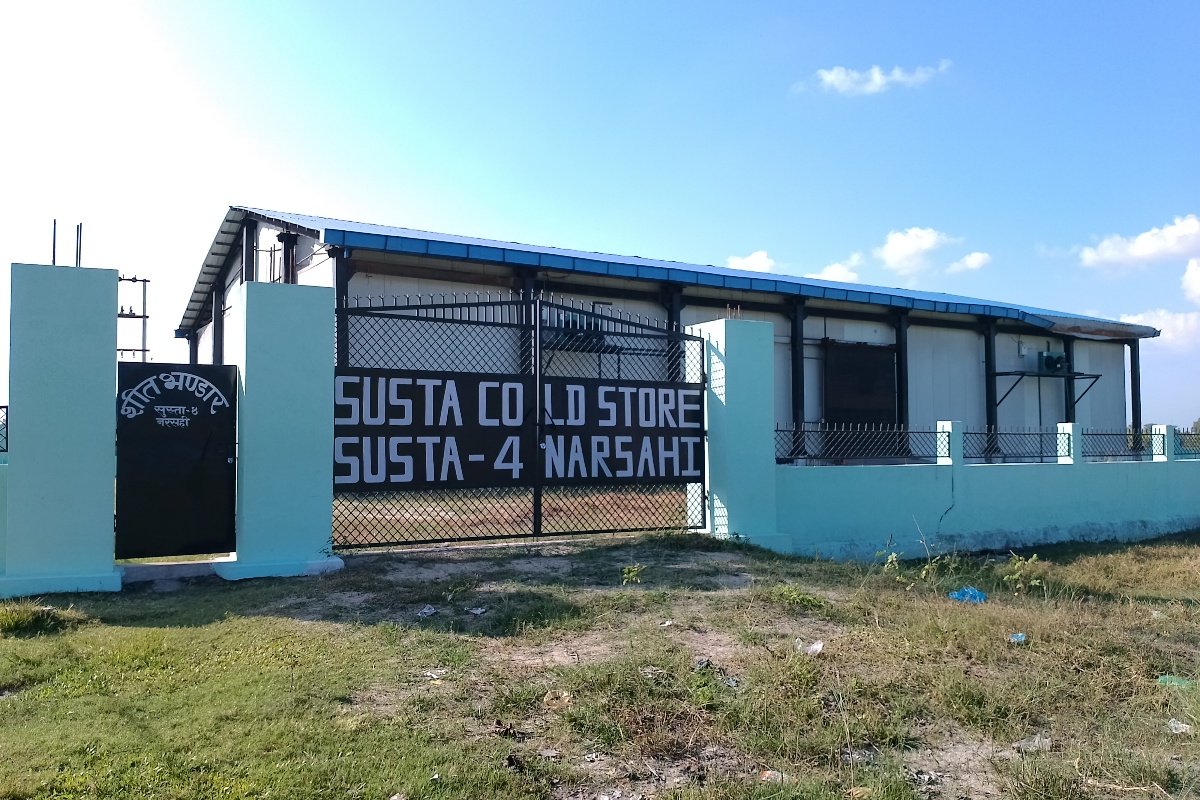
Lokraj Pokharel, coordinator of Vegetable Zone under Prime Minister’s Agriculture Modernization project in Pyuthan, says that projects that were built without cost-benefit analysis and sustainable maintenance system study, have had the farmers dejected.
“These cold stores were built to fool the farmers,” Pokharel, advisor at Small Farmer’s Agriculture Cooperative in Pyuthan-4 says. “These turned out to be nothing more than ‘store rooms’ built to house produce for 8-10 days. Technicians have highlighted that as well, citing the quality of equipment used.”
Millions have gone on waste as the cold stores built without proper study and long-term plan across the Lumbini province turned out to be ineffective. Farmers are left disappointed.
More Investigative Stories
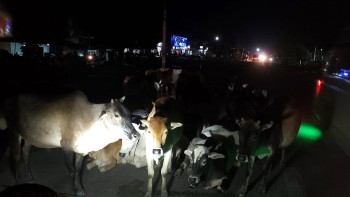
Stray cattle continue to haunt Kailali and Kanchanpur streets despite massive investment to manage them
Streets and settlements in Kailali and Kanchanpur have been teeming with stray cattle for years, destroying crops and causing road...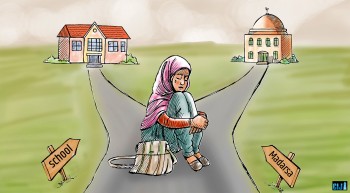
Between sharia lessons and modern classrooms: The Muslim child’s dilemma
People from gender and sexual minority communities have long been denied recognition of their true identity in citizenship and other...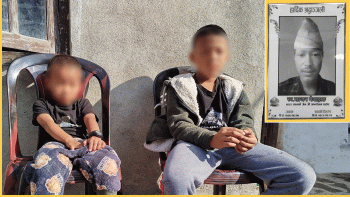
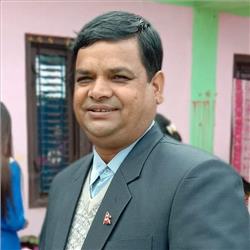
Comment Here